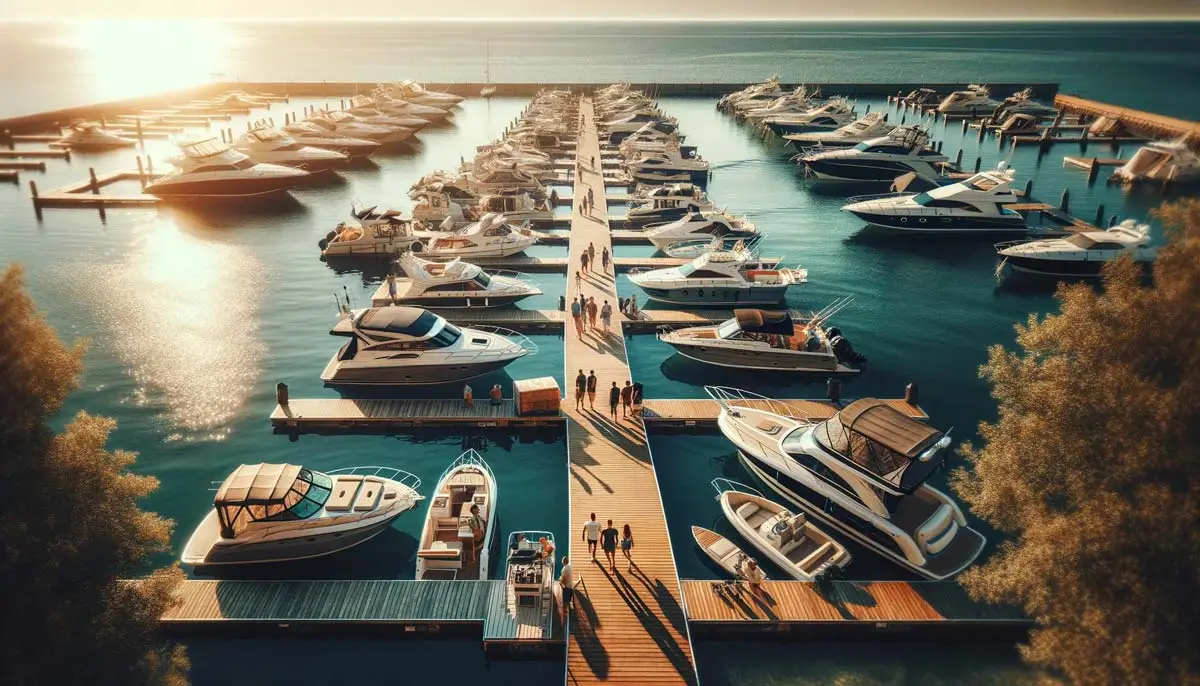 https://auction.ridesafely.com/images/2025/10/own-supercar-for-less-banner.jpg
865
1440
RideSafely
/images/2025/01/ridesafely-logo.svg
RideSafely2025-10-10 13:42:502025-10-13 12:18:37How to Own a Supercar for Less: Wrecked Exotics for Sale
https://auction.ridesafely.com/images/2025/10/own-supercar-for-less-banner.jpg
865
1440
RideSafely
/images/2025/01/ridesafely-logo.svg
RideSafely2025-10-10 13:42:502025-10-13 12:18:37How to Own a Supercar for Less: Wrecked Exotics for SaleBoating offers a serene escape or a thrilling adventure for the whole family. If you dream of cruising on the water but worry about the expense, there’s a budget-friendly way to make it happen: buying a salvage boat. These watercraft can help you realize your dreams at a fraction of the usual price. Here’s how to make sure you buy a salvage boat wisely and get the most out of your investment.
Understanding the Concept of Salvage Boats
A salvage boat is one that has been declared a total loss by insurance companies due to damage. Most commonly, damage comes from hurricanes or large storms. When storms hit the coast, insurance companies are inundated with claims and sometimes decide to write off repairs even if they aren’t excessively expensive. Salvage boats are then available for sale at auctions or through direct sales. However, buying one involves certain risks, so it’s crucial to assess the vessel properly.
Why Are Boats Salvaged?
A boat is typically declared a total loss when the cost of repairs exceeds 80% of its value. Hurricanes and storms are the main culprits, leaving insurers with countless claims that they handle by writing off the vessels rather than repairing them. Repair shops may be overwhelmed, and owners are often eager to cash out their claims instead of waiting for prolonged repairs. This is how many boats end up on the salvage market.
Key Factors to Consider Before Buying
- Initial Condition: Investigate the boat’s state before the damage occurred. A ripped canvas is often easy to fix, but if the boat suffered from negligence before the storm or incident, this could mean additional underlying issues. Focus on the boat’s history to ensure it’s worth the investment.
- Damage Type:
- Grounding: Boats that ran aground onto rocks, mud, or concrete might have only minor hull perforations. These can be patched up cost-effectively.
- Submersion: Boats that have been submerged can sustain extensive system damage, especially to the engine. If submerged for a short time, they may still be repairable if properly “pickled” (disassembled and cleaned).
- Debris Damage: Some boats may only have superficial damage like blown debris or a sheared sail. These boats often present the best salvage opportunities.
The Importance of Evaluating Damage Causes
Understanding the nature of the damage helps you decide if a particular salvage boat is worth the investment. For instance, a submerged boat may require extensive mechanical repairs. On the other hand, a grounded boat may only need minor hull fixes. Be sure to factor in potential repair costs before making a purchase.
Choosing the Right Boat Type
Salvage boats come in various types, so consider the one that best suits your needs:
- Motorboats: Ideal for general boating activities and leisure cruising.
- Fishing Boats: Specifically designed for fishing enthusiasts.
- Water Sports Boats: Perfect for activities like water skiing and wakeboarding.
- Cabin Boats: Offer more space and comfort for longer journeys.
- Cruiser Boats: Versatile and perfect for family outings.
- Motor Yacht Boats: Provide luxury and ample space.
- Jet Boats: Fast and maneuverable, perfect for thrill-seekers.
- Ski Boats: Designed for water skiing and other similar sports.
- Personal Watercraft (Jet Ski): Great for individual water-based adventures.
Finding the Right Auction
Once you’re ready to take the plunge, find reputable salvage vehicle auctions like RideSafely, which offers a broad selection of used and salvage boats for sale and auction. Research your options thoroughly and attend auctions in person if possible. Assessing the boat up close is invaluable and can help you spot any issues that might not be apparent in photos.
In addition to salvage boat auctions, you might be interested in finding great deals on vehicles. Learn how to decide between physical and online car auctions to find the best option for you.
Conclusion
With careful evaluation and a clear understanding of the types of damage involved, buying a salvage boat can be an affordable way to get your dream watercraft. Whether you’re looking for a thrilling side project or an inexpensive entry into boating, the right salvage boat can have you out on the lake this summer, creating waves of fun without sinking your wallet.
Frequently Asked Questions: Navigating the Salvage Boat Buying Process
What is a salvage boat?
A salvage boat is a vessel that has been declared a total loss by insurance companies due to damage, often from storms or hurricanes. These boats are typically sold at auction for a fraction of their original value.
Is buying a salvage boat a good idea?
Buying a salvage boat can be a smart financial move if you have a thorough understanding of the damage and the required repairs. Make sure to factor in all repair costs and consider the boat’s pre-damage condition before purchasing.
How can I determine the type and extent of damage on a salvage boat?
Examine auction listings for detailed information about the damage. If possible, inspect the boat in person or consult a marine surveyor. Pay special attention to the engine, hull, and electronic systems.
What types of salvage boats are available?
Salvage boats come in various types, such as motorboats, fishing boats, water sports boats, cabin boats, cruiser boats, motor yachts, jet boats, ski boats, and personal watercraft like Jet Skis.
Where can I find reputable salvage boat auctions?
You can find reliable auctions through sites like RideSafely, which provide a range of salvage boats. Always verify the auction’s credibility before making any purchases.
What are the main types of damage to look out for?
Key types of damage include grounding (boats running aground on rocks or mud), submersion (boats that have been flooded or submerged), and superficial debris damage (blown debris or damaged sails).
What should I do after buying a salvage boat?
Begin by thoroughly assessing and repairing all critical systems, especially the hull, engine, and electricals. Consider getting a professional marine surveyor to inspect the boat before you start using it.
Can a salvage boat be insured?
Yes, you can typically insure a salvage boat, but the coverage may be limited, and the premium may be higher. Shop around for marine insurers specializing in salvage boats.
Is it possible to finance a salvage boat purchase?
Financing may be available, but it can be more challenging due to the boat’s salvage status. Check with your financial institution or explore specialized marine lenders.
How long does it take to repair a salvage boat?
Repair times vary based on the boat type and extent of damage. Plan for a few weeks to several months, depending on the complexity and availability of replacement parts.






Leave a Reply
Want to join the discussion?Feel free to contribute!